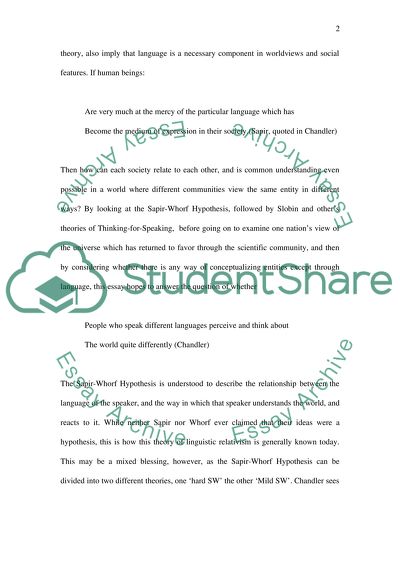Cite this document
(“Linguistic relativity theory Essay Example | Topics and Well Written Essays - 1500 words”, n.d.)
Retrieved from https://studentshare.org/english/1502062-linguistic-relativity-theory
Retrieved from https://studentshare.org/english/1502062-linguistic-relativity-theory
(Linguistic Relativity Theory Essay Example | Topics and Well Written Essays - 1500 Words)
https://studentshare.org/english/1502062-linguistic-relativity-theory.
https://studentshare.org/english/1502062-linguistic-relativity-theory.
“Linguistic Relativity Theory Essay Example | Topics and Well Written Essays - 1500 Words”, n.d. https://studentshare.org/english/1502062-linguistic-relativity-theory.


